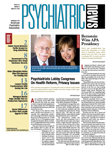Medical education and practice should minimize industry influence, and a government agency should become more actively involved in medical research and education, the Royal College of Physicians (RCP) in the United Kingdom recommended in a report issued February 4.
The RCP is the oldest professional association for physicians in England, Wales, and Northern Ireland, chartered by King Henry VIII in 1518 and now boasting a membership of 22,000. In 2007 the RCP set up a working group of representatives from medicine, industry, and the National Health Service (NHS) to review the relationships among the NHS, academic medicine, and the pharmaceutical industry.
The report produced by the group, titled “Innovating for Health: Patients, Physicians, the Pharmaceutical Industry, and the NHS,” contains 42 recommendations aimed at redefining the relationships among medicine, research, industry, and regulators with the goal of optimizing patient care.
The group surveyed the Patient and Carer Network, a 75-member group of patients, caregivers, and members of the public who are directly involved in the RCP discussions, to obtain patients' concerns and opinions about health care services. The survey revealed that patients and their caregivers were concerned about whether all patients in the United Kingdom have equal access to the most effective medicines. They were also troubled about the relationship between their physicians and pharmaceutical companies; many believed that gifts and information from industry to physicians may affect their independence in making decisions about what treatment is in their patients' best interests.
“Education is one of the most contentious areas between doctors, scientists, and industry,” the report noted. “Students ... need to be protected from undue pharmaceutical marketing.” The report also found that “continuing professional development programmes are too dependent on industry support.” The report called for reducing industry sponsorship for postgraduate medical education and increasing the role of the NHS.
The report authors stopped short, however, of calling for a ban on industry's involvement with medical education and instead recommended that companies place their educational grants into a pooled fund to decouple funding from specific products.
They also recommended that medical schools and institutions find alternative and sustainable sources for continuing medical education and that physicians should take “greater financial responsibility for their own postgraduate education.”
The authors recommended that “all gifts to doctors, including food and travel,... should end.” Echoing a recent trend in the United States, they also called for establishment of a public database to report all honoraria or fees a physician receives from pharmaceutical companies.
They cited controversies and debates currently raging in the U.S. medical community over the relationship between medicine and the pharmaceutical industry and its effect on patient care. They acknowledged similar concerns and criticisms in the United Kingdom from the media and the public despite important differences in the two countries' health care systems and policies.
Meanwhile, the report authors emphasized that collaboration between medicine and industry, with more support and investment from the NHS, is necessary and beneficial to advancing medicine and improving the quality of patient care. Both industry and academic researchers in the United Kingdom complain about losing the vitality of clinical research to other countries because of government bureaucracy and common anti-industry suspicions.
In an editorial in the February 7 The Lancet, Richard Horton, M.D., chair of the RCP working group and editor in chief of The Lancet, insisted that “all potentially adverse influences on doctors should be eliminated from the educational environment they train and work in.” ▪
